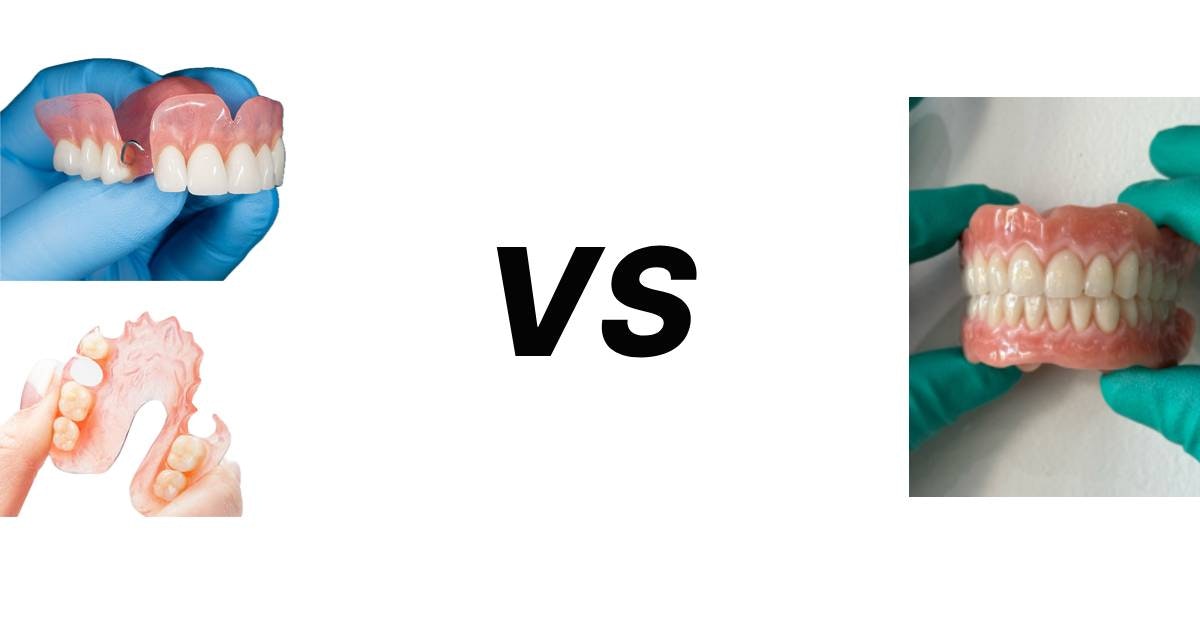How to Care for Your New Dentures: Professional Tips from Melbourne Prosthetists

Medical Disclaimer
This content is for educational and informational purposes only. It is not intended as medical advice and should not be used as a substitute for professional dental care. Always consult with a qualified prosthetist or dental professional for diagnosis and treatment recommendations specific to your individual needs.
Looking after your dentures properly will protect your oral health, help them last longer, and keep your smile looking great. In my 30 years as a prosthetist in Melbourne, I've seen patients get 7-10 years out of their dentures with good care habits, while others need replacements in just 3-4 years.
This guide covers everything you need to know about caring for your new dentures - from your daily cleaning routine to long-term maintenance tips.
Daily Denture Care Routine
Morning Routine (5-10 minutes)
Step 1: Gentle Removal
- Rinse your mouth with water
- Fill sink with water (cushion if dropped)
- Gently rock denture to break suction
- Remove carefully without bending
Step 2: Initial Rinse
- Hold denture over water-filled sink
- Rinse under lukewarm running water
- Remove loose food particles and debris
- Never use hot water (can warp dentures)
Step 3: Brush Your Dentures
- Use soft-bristled denture brush (not regular toothbrush)
- Apply non-abrasive denture cleanser
- Brush all surfaces gently:
- Outside (visible surface)
- Inside (tissue-contacting side)
- Chewing surfaces
- Between teeth
- Pay special attention to grooves and clasps
Step 4: Clean Your Mouth
- Brush gums with soft toothbrush
- Brush tongue to remove bacteria
- Brush roof of mouth (palate)
- Rinse with antibacterial mouthwash
- This stimulates circulation and removes plaque
Step 5: Reinsertion
- Rinse denture thoroughly
- Moisten denture and mouth
- Insert carefully and bite gently
- Check fit and comfort
After Every Meal (2-3 minutes)
- Remove dentures
- Rinse under running water
- Rinse your mouth
- Brush if possible, or at minimum rinse
- Reinsert dentures
Evening Routine (10-15 minutes)
Step 1: Remove and Clean
- Follow same brushing process as morning
- Be thorough as this is overnight cleaning
Step 2: Soak Overnight
- Use denture cleaning solution or water
- Follow product instructions
- Complete immersion
- Use clean container
- Change solution daily
Step 3: Oral Care
- Brush remaining natural teeth (if any)
- Floss natural teeth
- Brush gums, tongue, and palate
- Use antibacterial mouthwash
What Products to Use
Recommended Products:
✅ Denture Brush - Soft bristles, designed for dentures ✅ Denture Cleanser - Non-abrasive, specifically for dentures ✅ Denture Soak - Effervescent tablets or liquid solution ✅ Soft Toothbrush - For cleaning gums and tongue ✅ Antibacterial Mouthwash - Alcohol-free preferred
Products to AVOID:
❌ Regular Toothpaste - Too abrasive, scratches dentures ❌ Hard-Bristled Brushes - Can damage denture surface ❌ Bleach Products - Unless specifically denture-safe ❌ Hot Water - Can warp acrylic dentures ❌ Sharp Objects - Never use to remove stubborn stains ❌ Abrasive Cleaners - Household cleaners damage dentures
Storage Guidelines
Overnight Storage
Proper Method:
- Store in denture cleaning solution or water
- Use clean, covered container
- Ensure complete submersion
- Change solution daily
- Keep in cool, dry place
Why This Matters:
- Prevents drying and cracking
- Maintains proper shape
- Keeps dentures clean
- Prevents warping
- Extends denture lifespan
When Not Wearing Dentures
- Always keep dentures moist
- Never let them dry out
- Store away from pets and children
- Keep in protective case when traveling
- Avoid extreme temperatures
Handling and Safety
Proper Handling:
✅ Stand over a towel or water-filled sink ✅ Hold firmly but gently ✅ Avoid bending or twisting ✅ Keep away from edges and hard surfaces ✅ Wash hands before handling
Common Mistakes to Avoid:
❌ Wrapping in tissue (risk of accidental disposal) ❌ Leaving in hot car ❌ Placing on countertop where they can fall ❌ Handling roughly ❌ Forcing denture into position
Dealing with Common Issues
Denture Adhesive Use
When to Use:
- During adjustment period
- If dentures feel slightly loose
- For extra security during eating
- Special occasions requiring confidence
How to Apply:
- Start with clean, dry denture
- Apply small strips or dots (not full coverage)
- Place denture and bite firmly
- Use sparingly (less is more)
Removal:
- Rinse with warm water
- Use soft brush to remove residue
- Never sleep with adhesive
Managing Stains
Prevention:
- Rinse after coloured beverages
- Avoid smoking (stains and damages)
- Regular professional cleaning
- Daily proper cleaning routine
Treatment:
- Use denture cleaning tablets
- Professional cleaning every 6-12 months
- Ultrasonic cleaning at clinic
- Never use bleach without professional advice
Dealing with Odors
Prevention:
- Clean thoroughly twice daily
- Soak overnight in fresh solution
- Clean storage container regularly
- Keep up your oral hygiene
Treatment:
- Give them a deep clean with denture tablets
- Book a professional cleaning
- Replace your cleaning solution
- Check for damage or cracks
Professional Maintenance
Regular Check-ups
Every 6-12 Months:
- Professional cleaning
- Fit assessment
- Check for wear and damage
- Evaluate need for adjustments
- Oral health examination
At Primedent Clinic:
- Ultrasonic cleaning removes tough stains
- Professional polishing restores shine
- Expert fit evaluation
- Free adjustment if needed
- Advice on replacements
Relines
Every 1-2 Years:
- Relines reshape the fitting surface
- Accommodates bone and gum changes
- Improves comfort and stability
- Extends denture life
- Prevents sore spots
Repairs
Common Repairs:
- Cracked acrylic
- Broken teeth
- Loose teeth
- Broken clasps
- Adjustments for comfort
At Primedent:
- Same-day repairs available
- Quality Australian materials
- Expert workmanship
- Affordable pricing
- All health funds accepted
Special Considerations
For Partial Denture Wearers
Additional Care:
- Clean metal clasps thoroughly
- Pay attention to anchor teeth
- Floss between natural teeth
- Regular dental check-ups
- Professional scaling and cleaning
For Immediate Denture Wearers
First 24-48 Hours:
- Keep dentures in (as instructed)
- Expect swelling and discomfort
- Take prescribed pain medication
- Avoid hard foods
- Follow all post-extraction instructions
After Initial Period:
- Follow standard care routine
- Expect frequent adjustments
- More relining may be needed
- Monitor healing carefully
During Illness
- Clean dentures more frequently
- Use antibacterial mouthwash
- May remove more often if nauseous
- Maintain oral hygiene
- Stay hydrated
Foods and Dentures
Foods to Enjoy:
✅ Soft proteins (eggs, fish, ground meat) ✅ Cooked vegetables ✅ Soft fruits (bananas, berries) ✅ Soups and stews ✅ Pasta and rice ✅ Dairy products ✅ Soft breads
Foods Requiring Caution:
⚠️ Raw vegetables (cut small) ⚠️ Tough meats (cut small, chew slowly) ⚠️ Crusty bread (soften first) ⚠️ Nuts (chop finely) ⚠️ Corn on cob (cut off cob)
Foods to Avoid:
❌ Very sticky foods (caramels, taffy) ❌ Very hard foods (hard candy, ice) ❌ Popcorn kernels ❌ Whole nuts ❌ Chewy candies ❌ Foods that stain heavily
Emergency Care
What to Do If:
Denture Breaks:
- Don't try to repair yourself
- Save all pieces
- Call Primedent immediately
- We offer same-day repairs
- Don't use super glue!
Denture Doesn't Fit:
- Don't adjust yourself
- Schedule appointment
- Bring denture
- May need reline or adjustment
- Don't force it
Sore Spots Develop:
- Remove dentures more often
- Salt water rinses
- Avoid adhesive temporarily
- See prosthetist within 48 hours
- May need professional adjustment
Denture is Lost:
- Contact us immediately
- We can remake from records
- Bring any old dentures
- Usually 1-2 weeks for replacement
- Emergency temporary available
Long-Term Care Tips
Extending Denture Life:
- Never Skip Daily Cleaning - Bacteria buildup damages dentures
- Regular Professional Care - Catches problems early
- Handle with Care - Most damage is preventable
- Timely Repairs - Small problems become big ones
- Proper Storage - Maintains shape and integrity
When to Replace:
Signs You Need New Dentures:
- More than 7-10 years old
- Frequent repairs needed
- Persistent fit problems
- Visible wear on teeth
- Cracks or damage
- Changed facial appearance
- Difficulty eating or speaking
Cost of Care
Daily Products (Monthly):
- Denture cleanser: $5-$10
- Denture tablets: $8-$15
- Denture brush: $5-$8 (lasts 3 months)
- Adhesive (if needed): $8-$12
- Total: $26-$45 per month
Professional Care (Annually):
- Check-up and cleaning
- Reline (every 1-2 years)
- Adjustments
- Repairs (as needed)
Health Fund Coverage:
- Most funds cover check-ups and cleanings
- Some cover relines and repairs
- Check your specific policy
Frequently Asked Questions
How often should I clean my dentures? Clean thoroughly twice daily (morning and night) and rinse after every meal.
Can I use regular toothpaste on dentures? No, regular toothpaste is too abrasive and will scratch your dentures, making them more prone to staining and bacteria buildup.
Is it okay to sleep with dentures in? It's best to remove them at night to allow your gums to rest and maintain better oral health.
How long do dentures typically last? With proper care, dentures last 5-7 years on average. Some patients get 10+ years with excellent care.
Can I adjust my dentures myself? Never attempt to adjust dentures yourself. This can cause irreversible damage. Always see a qualified prosthetist.
What if my dentures feel loose? Loose dentures usually need a reline. Contact your prosthetist for an assessment.
Your Partner in Denture Care
At Primedent Denture Clinic, we're committed to helping you maintain your dentures for maximum comfort, function, and longevity.
Our Services Include: ✅ Free follow-up adjustments ✅ Same-day repairs ✅ Professional cleaning and polishing ✅ Reline services ✅ Emergency appointments ✅ Expert advice and support
Contact Us Today:
📞 (03) 9497 9666 📍 145 High St, Thomastown, VIC 3074 🕐 Monday-Friday, 9 AM - 5 PM
Serving Thomastown, Lalor, Epping, Mill Park, and all Melbourne northern suburbs.
This article was written by Goran, Principal Prosthetist at Primedent Denture Clinic, with over 30 years of experience in prosthodontics. Information is current as of November 2025.
Need Professional Denture Care?
Our experienced team at Primedent Denture Clinic is here to help. Book a free consultation today to discuss your denture needs.
About the Author
Goran
Principal Prosthetist
With over 30 years of experience in prosthodontics, Goran has helped thousands of patients across Melbourne regain their confidence with quality denture solutions.
Last updated:
Related Articles

5 Signs You Need Denture Repair in Melbourne
Learn the key signs that indicate your dentures need repair in Melbourne. Expert advice on denture maintenance and when to seek professional denture repair services from experienced prosthetists.
7 min read

Full Dentures vs Partial Dentures: Expert Guide for Melbourne Patients 2025
Comprehensive comparison of full and partial dentures from Melbourne's experienced prosthetists. Learn which option is right for you, costs, benefits, and what to expect.
9 min read

Denture Cost Guide Melbourne 2025: What You'll Really Pay
Transparent pricing guide for dentures in Melbourne. Learn actual costs for full, partial, and implant-supported dentures, plus health fund coverage and payment options.
8 min read
